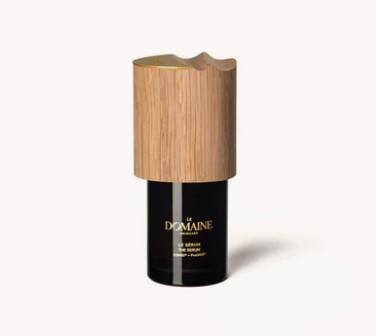The Problem With Genderless Beauty
Beauty products have always been here for anyone who wants them.
A few years back, I got into a podcast called Dewy Dudes. It’s these two urban twenty-somethings fanboying out about skincare. I found it strangely exciting, arousing almost, to know that there existed a long-tail contingent of cishet men who got boners over cleansers and serums. Some nights, I would take the Dewy Dudes to bed with me and lull myself to sleep with the sound of straight men discussing the exquisite benefits of Tretinoin.
I was comforted by the thought that something was happening, that our culture was finally in a place where men could openly care about beauty as much as women have for decades. l loved the way the Dudes made fun of marketed-to-men skincare and dragged devolved douchebags who stock their showers with economy-size bottles of 3-in-1 (a bad look when a woman spends the night).
And yet, here we are, several years later, still doing marketing backbends to get men to take an interest in their appearance. The way we’re doing it now, apparently, is by launching new brands and calling them “genderless.”
Evan Mock is the latest (joining Brad Pitt, Jared Leto and many others) to have come out as a founder of a gender non-specific beauty brand. Besides the fact that the sheer number of new celeb beauty brands is alarming to almost everyone who is aware of it, and that we all understand that TV, film and music stars owe most of the credit for their youthful looks to their estheticians and plastic surgeons, not their skincare routines, the most insulting thing about these rollouts is that the founders often brazenly admit to knowing nothing about skincare.
LE DOMAINE Artfully carved wood = safe for men.
Even my Dewy Dudes, after more than 100 episodes, are still talking about skincare with little authority. Their shtick is not evolving. Lately, I only tune in when they have a knowledgeable guest from the beauty industry, usually a woman. When I do listen, the hosts sound to me like the Beavis and Butthead of beauty.
“What is this persistent trope, the beauty-clueless straight man?”
What is this persistent trope, the beauty-clueless straight man? And is calling a skincare line “genderless” the way to break out of it? Or are the gratuitously artful, gilded-wood caps topping Le Domaine bottles a coded way to capture the most lucrative sector of the beauty market, women, while gently assuring lowkey homophobes that using moisturizer doesn’t make you gay?
If you think about it, genderless just means “cool.” Call to mind CK1, Kiehl’s, Aesop or Le Labo. Their success is built on the unmentioned assumption that everyone wants to look, feel and smell great. Besides, couples sharing little luxuries from the bathroom vanity is sexy. Anything marketed overtly to men or women runs the risk of coming off corny. Unfortunately, this is still what we’re accustomed to, so whenever a brand comes out that really understands us, rather than a stereotype of us, it seems ingeniously fresh. See: Humanrace by Pharrell, who really does care about beauty products.
A while back, I had a meeting with a straight male client, a fashion photographer, who complained that he had sunburn from a recent dudes’ trip to the desert—he’d carelessly forgotten to wear sunscreen. I brought him a sample of Laurel Skin’s Sun Serum, and suggested he get acquainted with the soothing effects of ingredients like calendula, sea buckthorn and licorice root. Two weeks later, he texted me a photo of the empty bottle asking where he could get more. “I see what ladies are on about now,” he wrote. “I don’t want this feeling to stop.”
I loved the idea of turning a man on to the sensual pleasure of facial oil, but I also realized it is not my responsibility to care for the complexion of every straight man who walks into my life. Skincare is here for anyone who wants it. If you need Jared Leto to tell you that, maybe you’re beyond help.

